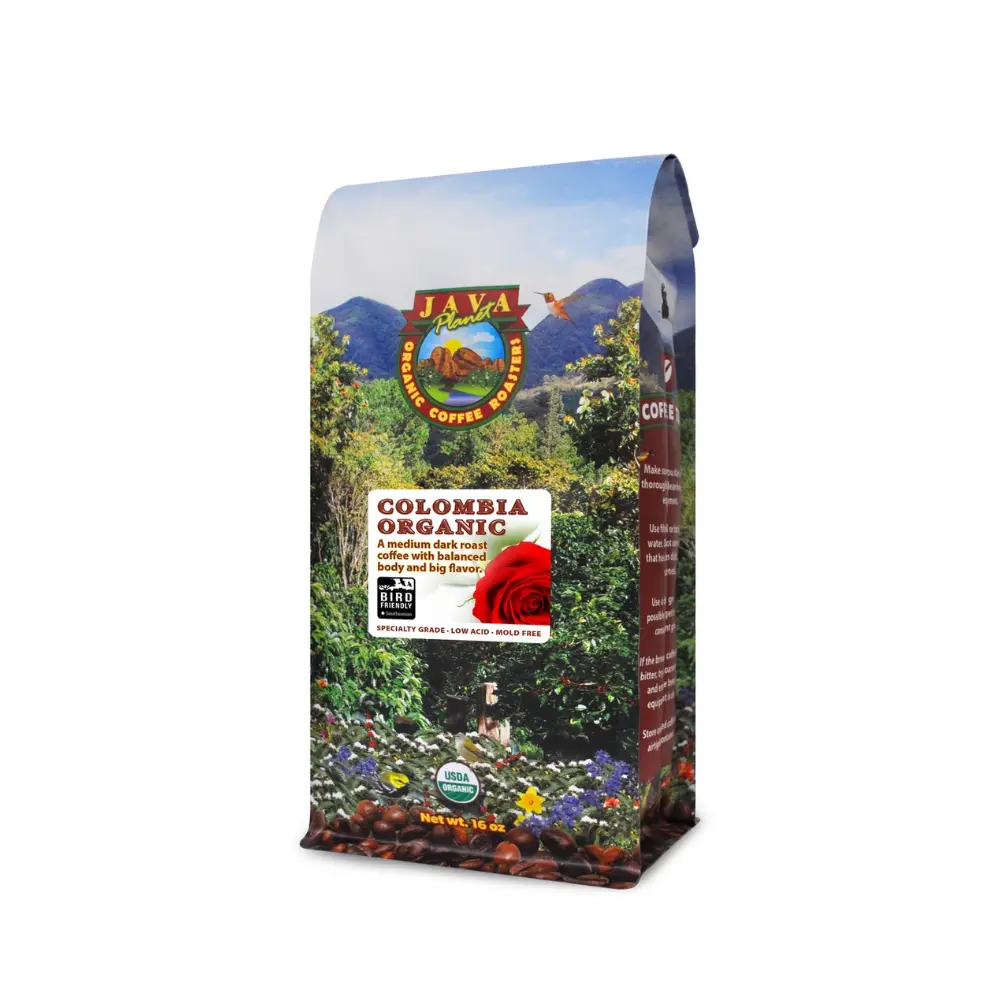In the ever-evolving world of food and beverage trends, alkaline coffee is one of the latest phenomena to grab the attention of health enthusiasts globally. This unique concoction balances the customary richness of coffee with the health-enhancing properties of alkaline foods, creating a synergistic beverage that promises to contribute to your overall well-being. But what is alkaline coffee? In essence, it’s a coffee variant that undergoes a special brewing process using alkaline water or alkaline-inducing ingredients, resulting in a pH level higher than traditional coffee. The higher alkalinity not only neutralizes the coffee’s natural acidity but also offers a plethora of potential health benefits.
This article aims to delve deep into the world of this type of coffee. We’ll explore its potential health benefits, introduce you to some simple and delightful recipes, and provide a comprehensive guide to incorporating this innovative beverage into your lifestyle for a healthier, balanced living experience. Whether you are a coffee aficionado looking to spice up your morning routine, or a wellness devotee on the lookout for the next superfood, this coffee could be your next healthy obsession.
Alkaline Coffee: Key Takeaway
- Healthful Alternative: This beverage, with its low acidity, serves as a healthier alternative to regular coffee, offering benefits such as promoting pH balance, alleviating acid reflux and heartburn, and boosting digestive health.
- Flavor and Preparation: This coffee offers a unique flavor profile, with various brewing methods and food pairings enhancing its taste. Incorporating it into your daily routine is effortless with the right tips and strategies.
- Role in Alkaline Diet: This type of coffee can easily fit into an alkaline diet, potentially improving your pH balance and contributing to overall health.
- Sustainability and Fair Trade: This coffee drink often aligns with eco-friendly farming techniques, fair trade practices, and local community support, making it a sustainable choice.
- Buying Guide: Knowing what to look for when purchasing this coffee, from the best brands to freshness preservation, is essential to ensure you’re getting a quality product.
Introduction to Alkaline Coffee
In the quest for healthier lifestyle choices, this type of coffee emerges as an intriguing player. As a part of our daily routine, coffee often acts as a source of comfort, a wake-up call, or a conversation starter. Adding an alkaline twist to this beloved beverage allows us to reap several potential health benefits while still savoring our morning cup of joe.
What is Alkaline Coffee?

This type of coffee is a specialty brew that utilizes alkaline water or alkaline-inducing ingredients during the brewing process. The intention is to achieve a final product with a pH level above 7, the neutral point on the pH scale, making it less acidic than traditional coffee. By reducing acidity, this coffee variant can potentially help balance the body’s pH levels, an aspect often associated with numerous health benefits. Additionally, many aficionados claim that the higher pH level enhances the flavor profile, offering a smoother and less bitter taste.
Origins of Alkaline Coffee
The concept of this beverage can be traced back to the broader idea of an alkaline diet, a dietary approach designed to enhance health and prevent diseases by promoting foods that alkalize the body. (1) Inspired by this principle, food innovators turned their attention to coffee, one of the most consumed beverages worldwide, and considered how they could imbue it with alkalizing properties. Although this type of coffee is still a relatively new phenomenon, it is quickly gaining traction across the globe as an exciting alternative to traditional coffee, particularly among health-conscious consumers.
How is Alkaline Coffee Different?

To understand the uniqueness of this coffee, let’s examine its distinct attributes:
- pH Level: The most defining characteristic of this kind of coffee is its higher pH level compared to traditional coffee. While regular coffee tends to fall on the acidic side of the pH scale (around 4.85 to 5.10), this coffee sits at a more neutral or alkaline position, typically above 7.
- Flavor Profile: This beverage is often described as smoother and less bitter than its regular counterpart. The reduced acidity results in a less harsh taste, allowing the inherent flavors of the coffee beans to shine through more clearly.
- Health Benefits: This coffee is believed to offer a range of potential health benefits. This is largely attributed to the alkalizing effect it can have on the body, which some health experts suggest can help improve digestion, boost immunity, and reduce inflammation, among other benefits.
- Preparation Method: The brewing process for this beverage differs slightly from that of regular coffee. It involves using alkaline water or adding alkaline-inducing ingredients such as calcium, magnesium, or potassium.
Through these unique features, This type of coffee stands as a compelling alternative for those seeking to add a health-boosting twist to their daily caffeine fix.
The Health Benefits of Alkaline Coffee

As we continue to navigate the realm of this beverage, one aspect remains particularly captivating: its potential health benefits. These benefits are primarily linked to the alkalizing properties of coffee, which can have a substantial impact on various bodily functions. Let’s delve deeper into how this innovative brew could contribute to your wellness journey.
Promoting pH Balance
Our bodies naturally strive for a delicate pH balance, usually leaning towards a slightly alkaline state. Modern diets, high in processed and sugary foods, can often tip this balance towards acidity, potentially leading to a condition known as metabolic acidosis. In such a state, the body may experience lower energy levels, increased vulnerability to illness, and slower recovery from exercise or injury.
This type of coffee, with its pH level above 7, can assist in counteracting this acidity and restoring balance. Providing an alkaline alternative to regular coffee, it allows coffee enthusiasts to enjoy their daily ritual without contributing to the body’s acidic load.
Alleviating Acid Reflux and Heartburn
Acid reflux and heartburn are common conditions often exacerbated by the consumption of acidic foods and beverages. Traditional coffee, due to its naturally acidic properties, can sometimes trigger or worsen these symptoms. Alkaline coffee, however, offers a less acidic alternative.

Its higher pH level reduces the likelihood of it irritating the esophagus and triggering reflux symptoms. Thus, individuals who typically experience discomfort or pain after drinking regular coffee may find relief with an alkaline version.
Enhancing Gastrointestinal Wellness

This delectable coffee might offer advantages for digestive health. The lower acidity of this beverage makes it gentler on the stomach and less likely to cause upset. This can be particularly beneficial for individuals with sensitive stomachs or conditions like gastritis, where the stomach lining becomes inflamed due to excess acid.
Additionally, some of this coffee’s brands infuse their product with prebiotics and probiotics, beneficial compounds that support gut health. Prebiotics feed the beneficial bacteria in our gut, while probiotics are the beneficial bacteria themselves. Together, they can help maintain a healthy gut microbiome, which is crucial for digestion, nutrient absorption, and overall health.
Boosting Energy Levels and Mental Clarity
Alkaline coffee, while potentially less acidic, still maintains the caffeine content inherent to coffee, ensuring that it continues to serve as an effective energy booster. Caffeine stimulates the central nervous system, temporarily warding off fatigue and improving focus and alertness. But the benefits of this concoction extend beyond just caffeine.

Balancing the body’s pH levels, as this type of coffee aims to do, may also lead to improved energy levels. When the body’s internal environment leans towards being too acidic, it may negatively impact various physiological processes, potentially leading to feelings of fatigue or sluggishness. By promoting a more balanced pH, this coffee might help optimize the body’s natural energy production and facilitate better cognitive functioning.
Antioxidant Properties of Alkaline Coffee
Just like traditional coffee, alkaline coffee is rich in antioxidants – compounds that fight against harmful free radicals in the body. Free radicals can cause oxidative stress, which is linked to a variety of chronic diseases, including heart disease, cancer, and neurodegenerative disorders.
The primary antioxidants in coffee are chlorogenic acid and melanoidins. Chlorogenic acid is found in green coffee beans and has been shown to reduce inflammation and regulate blood sugar levels. Melanoidins are formed during the roasting process and have been associated with antimicrobial, antiretroviral, antioxidant, and anti-inflammatory activities.
This distinctive coffee may offer an additional antioxidant advantage. Some proponents suggest that an alkaline environment can enhance the body’s natural antioxidant defenses, potentially making the antioxidants in this particular coffee more effective. However, more research is needed to confirm this benefit.
It’s essential to remember that while this beverage can be a great source of antioxidants, it shouldn’t replace a diet rich in fruits, vegetables, and whole grains, which provide a wide variety of antioxidants and other essential nutrients. The best approach to health is always a balanced, varied diet complemented by regular exercise and a healthy lifestyle.
The Flavor Journey: Understanding Alkaline Coffee Profile
While alkaline coffee’s potential health benefits are exciting, flavor remains an integral part of the coffee experience. To truly appreciate this innovative beverage, we must understand how alkalinity influences the taste profile and learn how to best brew and pair this coffee.
Decoding the Flavor of Alkaline Coffee

The flavor profile of this coffee is one of its standout features. The brewing process, using alkaline water or alkaline-inducing ingredients, yields a smoother, less acidic taste compared to traditional coffee. This reduced acidity can unveil nuanced flavors of the coffee beans that might be overshadowed in a conventional brew.
As mentioned before, this beverage is often described as having a smoother mouthfeel and a more balanced flavor. The bitterness commonly associated with coffee is minimized, which allows subtle flavor notes such as chocolate, caramel, or fruits to become more discernible. However, like all coffee, the exact flavor will depend on the type of beans used, their origin, and the roasting process.
Best Ways to Brew Alkaline Coffee

Brewing this type of coffee involves some adjustments to the standard coffee-making procedure:
- Use Alkaline Water: The easiest way to make this beverage is by brewing your regular coffee beans with alkaline water, which can be purchased or made at home by adding alkaline minerals to filtered water.
- Opt for Alkaline Coffee Brands: Some coffee brands sell pre-made alkaline coffee. These often contain coffee that has been infused with alkaline minerals or are mixtures that include alkaline-promoting ingredients.
- Cold Brew Method: The cold brew method naturally reduces the acidity of coffee, making it a suitable choice for preparing this coffee drink.
Pairing Alkaline Coffee with Food

Much like traditional coffee, alkaline coffee pairs well with a variety of foods. However, if you’re aiming to maintain an alkaline diet, consider pairing it with alkaline or pH-neutral foods.
- Sweet Pastries and Bread: Sweet pastries and bread, especially those made from whole grains, can balance the flavors of this type of coffee, complementing its smooth and subtle flavor notes.
- Fruits: Fresh fruits, especially berries, and citrus can complement the unique flavor profile of this beverage. They also contribute additional antioxidants and vitamins to your meal.
- Nuts and Seeds: Almonds, flaxseeds, and sunflower seeds are examples of alkaline-promoting foods that can be enjoyed with this drink.
- Avocado: An alkaline food staple, avocados offer a creamy texture and a neutral flavor that pairs wonderfully with coffee.
With an open mind and adventurous palate, this distinctive coffee can take you on an exciting flavor journey, contributing to both your taste experience and your health.
Incorporating Alkaline Coffee into Your Daily Routine
Adapting to this type of coffee doesn’t necessarily require a significant shift in your daily routine. However, there are certain strategies you can employ to make the most of this wellness-promoting beverage. Let’s explore the optimal times to enjoy this beverage, the leading brands in the market, and some handy tips for brewing it on the go.
Best Time to Consume Alkaline Coffee

Much like regular coffee, alkaline coffee can be enjoyed at various times throughout the day depending on personal preference and lifestyle. However, some suggestions might optimize its benefits:
- Morning Brew: Drinking this particular coffee in the morning can help kickstart your day with its caffeine content while offering potential pH-balancing benefits.
- Post-Meal Digestif: Enjoying this beverage after a meal can aid digestion due to its lower acidity and potential alkalizing effects.
- Pre-Workout Energy Booster: If you’re into fitness, having a cup of this coffee before your workout could provide a caffeine boost and help maintain a balanced pH during the workout.
Remember, everyone’s body reacts differently to coffee, and these are just guidelines. It’s essential to listen to your body and consume coffee in a way that suits you best.
Tips for Making Alkaline Coffee on the Go
Traveling or a busy schedule shouldn’t impede your coffee routine. Here are some tips for brewing it on the go:
- Portable Alkaline Water Bottles: These are equipped with filters that transform regular water into alkaline water, ideal for brewing your coffee anywhere.
- Instant Alkaline Coffee Sachets: Several brands offer instant alkaline coffee that only requires hot water— a perfect travel companion.
- Cold Brew: Make a large batch of cold brew using alkaline water at home and carry it with you in a thermos or bottle.
This delectable type of coffee, with its potential health benefits and distinct flavor profile, can be a fantastic addition to your daily routine. Whether at home, at work, or on a journey, this refreshing twist on your favorite beverage offers a path to health-conscious caffeine enjoyment.
Buying Guide: Choosing the Right Alkaline Coffee

The benefits of this coffee are well-documented, but to truly enjoy this healthier alternative to regular coffee, it’s essential to know how to choose the right product. This section will guide you through the key aspects to consider when buying this coffee, discuss some of the best alkaline coffee brands in the market, and offer tips for storing your coffee to maintain its freshness and flavor profile.
What to Look for When Buying Alkaline Coffee
When you’re shopping for this type of coffee, several factors come into play to ensure you’re getting the best quality. Here are the key aspects to consider:
- pH Level: The first thing to look at is the pH level. An alkaline product should ideally have a pH above 7.
- Organic Certification: To reap the full health benefits, ensure the coffee is certified organic. This means it’s grown without the use of synthetic fertilizers or pesticides.
- Fair Trade Certification: This assures that the farmers were paid a fair price for their coffee and that sustainable farming methods were used.
- Roast Type: The type of roast can affect the acidity level. Light roasts tend to be more acidic than darker roasts.
- Single-Origin or Blend: Single-origin coffee comes from one place, offering a unique flavor profile. Blends combine beans from different locations, offering a complex taste.
- Customer Reviews: Reviews can provide valuable insight into the taste and quality of the coffee.
Best Alkaline Coffee Brands
Choosing the best alkaline coffee for your needs can be a daunting task given the growing number of brands and blends on the market. To simplify your search, we’ve compiled information on three top-notch brands renowned for their high-quality, low-acid, and potentially alkaline-forming coffees.
Lifeboost Ground Medium Roast Coffee – Low Acid Single Origin

Lifeboost’s Medium Roast Coffee stands out with its premium, ethically sourced beans that are grown amidst the majestic landscapes of Central America. Embodying an organic blend that is low in acidity, this coffee offers a rich, full-bodied flavor profile. With meticulous sun-drying and spring water washing processes, Lifeboost ensures the absolute purity of their coffee.
Pros:
- Certified by USDA as 100% organic and rigorously tested for toxins by third parties
- Low-acid coffee may help reduce stomach discomfort and dental issues
- 30-day money-back guarantee
Cons:
- Premium pricing may not suit all budgets
- Pre-ground beans might not offer the same freshness as whole beans
Java Planet Low Acid Coffee, Organic Colombian Single Origin

- Great Tasting Low Acid Coffee! This coffee is our most popular coffee adored by our customers seeking low acid and great flavor. While 3rd party lab tested as low acid, this coffee may not be suitable for individuals with certain digestive sensitivities.
Java Planet’s Organic Colombian Single Origin Coffee captivates with its rich taste and low acidity. This single-origin coffee hailing from Colombia has a delightful fruity note that has made it a customer favorite. The brand’s commitment to quality shines through its organic specialty-grade Arabica coffee beans.
Pros:
- Holds the Rainforest Alliance Certification, ensuring fair trade and environmental responsibility
- Whole-bean coffee allows the consumer to grind to the preferred coarseness
- Responsive customer service from a family-owned business
Cons:
- Specific flavor profile may not suit all palates
- Requires home grinding equipment
Puroast Low Acid Coffee Ground, Organic House Blend

Puroast’s Organic House Blend is designed for coffee lovers seeking lower acid levels to alleviate gastrointestinal concerns. With its roasting techniques rooted in the Andean tradition, Puroast offers a blend that is high in antioxidants and devoid of bitterness.
Pros:
- Contains significantly higher antioxidants than most leading coffee brands
- Utilizes clean, renewable technology for roasting
- Offers a variety of formats including single-serve, whole bean, and ground coffee
Cons:
- The flavor might be too mild for some coffee aficionados
- The reduced bitterness might not appeal to everyone’s palate
These best alkaline coffee brands each offer unique blends that cater to different preferences. Whether it’s the single-origin purity of Lifeboost, the full-bodied richness of Java Planet, or the exceptionally smooth blend of Puroast, there’s something for every coffee lover to enjoy.
How to Store Alkaline Coffee for Freshness

Once you’ve bought your coffee, it’s crucial to store it properly to preserve its freshness, flavor, and nutritional benefits. Here are some storage tips:
- Keep it Cool and Dry: Store your coffee in a cool, dry place, away from sunlight and excessive heat.
- Air-Tight Containers: Exposure to air can deteriorate the quality of coffee. Use an airtight container for storage.
- Avoid the Fridge or Freezer: Contrary to common belief, storing coffee in the fridge or freezer can lead to moisture exposure, compromising its quality.
- Use Within a Month: For optimal freshness and taste, try to use your coffee within a month of opening.
Remember, the best alkaline coffee brands are not just about taste but also about the positive impact on your health and the environment. So choose wisely and savor every sip of your cup of coffee!
Alkaline Coffee and the Alkaline Diet
In recent years, there’s been a rising interest in the alkaline diet, premised on the idea that the food we consume can affect the pH balance of our bodies. One key aspect of this dietary approach is the incorporation of beverages like this type of coffee. In this section, we will delve into what the alkaline diet is, how alkaline coffee fits into it, and the potential effects this could have on your pH balance and overall health.
Understanding the Alkaline Diet
The alkaline diet, also known as the acid-alkaline or alkaline ash diet, is based on the concept that different foods can influence the body’s acid-base balance. The pH scale ranges from 0, being extremely acidic, to 14, highly alkaline, with 7 being neutral. Our bodies naturally maintain a slightly alkaline pH level of around 7.4 in the bloodstream.

Proponents of the alkaline diet believe that a diet high in acid-forming foods (such as meat, dairy products, and processed foods) can lead to a slight pH imbalance and potentially contribute to various health issues, including osteoporosis, kidney stones, and inflammation. On the other hand, a diet rich in alkaline-forming foods (like fruits, vegetables, nuts, and legumes) is thought to promote optimal health by maintaining the body’s pH balance.
How Alkaline Coffee Fits into the Alkaline Diet
As discussed earlier traditional coffee is known to be acidic, with a pH ranging from 4.85 to 5.10, which is lower than neutral. As such, it would typically be classified as an acid-forming food in the context of an alkaline diet. However, this type of coffee is different. It’s processed in a way that reduces its acidity, and when brewed using alkaline water, it can result in a beverage with a more neutral pH. This makes this coffee a better fit for the alkaline diet compared to regular coffee.
Moreover, this kind of coffee is often made using organic, high-quality coffee beans that are rich in antioxidants, and this aligns well with the focus on nutrient-dense, health-promoting foods in the alkaline diet. Therefore, incorporating this distinctive coffee into an alkaline diet can be seen as a way to enjoy the benefits of coffee without potentially disrupting your body’s pH balance.
Potential Effects on pH Balance and Overall Health
The human body has an intricate system for maintaining its pH balance, and significant deviations in systemic pH can have serious health consequences. The premise of the alkaline diet, however, concerns more subtle shifts in pH and their potential cumulative effects on health.
While further research is needed to fully understand the long-term health implications of the alkaline diet, some studies suggest that a diet high in alkaline-forming foods can benefit bone health, reduce muscle wasting, and enhance magnesium absorption. In this regard, alkaline coffee could potentially contribute to these health benefits.
Furthermore, the decreased acidity in this beverage is known to alleviate acid reflux and heartburn symptoms in some people, which can be seen as an added advantage of fitting this beverage into an alkaline diet.
To sum up, alkaline coffee, with its lower acidity and antioxidant properties, makes an interesting addition to the alkaline diet. While the science behind the alkaline diet continues to evolve, including this type of coffee in your diet might potentially improve your well-being, especially if you’re a coffee enthusiast keen on maintaining your pH balance.
Alkaline Coffee Recipes

Whether you’re a coffee connoisseur or a novice, preparing your brew can be a unique experience, one that allows you to tailor your coffee to your preferences. With this unique and delectable coffee, you can enjoy the benefits of a less acidic brew and experiment with various recipes that appeal to your palate. Let’s explore a few ways to prepare your alkaline coffee – from a basic recipe to more adventurous iced coffee and smoothie versions.
Basic Alkaline Coffee Recipe
An excellent place to start is the classic hot brew with a twist. This recipe is simple and lets the unique characteristics of this coffee shine.
Ingredients:
- 2 tablespoons of this coffee’s grounds (choose one of the brands mentioned above)
- 8 ounces of alkaline water
Instructions:
- Heat the alkaline water to between 195 to 205 degrees Fahrenheit, which is the ideal temperature for brewing coffee.
- Place the coffee grounds in your coffee maker. If you’re using a manual method like a French press, add the grounds to the bottom of the press.
- Pour the hot water over the grounds and let the coffee brew. The brewing time will depend on your method. For a French press, wait about four minutes before pressing the plunger.
- Serve the coffee hot, and enjoy the lower acidity and rich flavor of your brew.
Alkaline Iced Coffee Recipe
On hot summer days, iced coffee can be the perfect refreshment. Here’s how to make an iced version of this type of coffee.
Ingredients:
- 2 tablespoons of alkaline coffee grounds
- 8 ounces of alkaline water
- Ice cubes
- Almond milk (optional)
- Sweetener (optional)
Instructions:
- Brew your coffee as per the basic recipe, but make it slightly stronger because the ice will dilute it.
- Allow the coffee to cool to room temperature.
- Fill a glass with ice cubes.
- Pour the cooled coffee over the ice.
- Add almond milk if you prefer a creamier coffee, and sweeten to taste. Remember that many sweeteners are acidic, so try to choose a low-acid option if you want to maintain the alkalinity.
- Stir well and enjoy your refreshing alkaline iced coffee.
Alkaline Coffee Smoothie Recipe
For a breakfast or post-workout option, try this alkaline coffee smoothie. It’s a delicious and healthy recipe that packs the benefits of this coffee and nutrient-dense smoothie ingredients into one drink.
Ingredients:
- 1 cup of brewed and cooled coffee
- 1 ripe banana
- 1/2 cup of unsweetened almond milk
- 1 tablespoon of almond butter
- 1 tablespoon of chia seeds
- 1/2 teaspoon of cinnamon
- 1/2 teaspoon of pure vanilla extract
- Sweetener of choice (optional)
- Ice cubes
Instructions:
- Brew your coffee as per the basic recipe and allow it to cool.
- In a blender, combine the cooled coffee, banana, almond milk, almond butter, chia seeds, cinnamon, vanilla extract, and sweetener if using.
- Blend until smooth.
- Add ice cubes and blend again until the smoothie is chilled and frothy.
- Pour into a glass, and your alkaline coffee smoothie is ready to serve.
Incorporating this delectable coffee into your dietary routine doesn’t mean you have to limit yourself to the basic brew. From iced coffee to a smoothie, these recipes provide you with a variety of ways to enjoy the unique flavor
Sustainable Production of Alkaline Coffee
In an era where consumers are more conscious about environmental conservation and fair trade, the coffee industry has not been left behind. This coffee’s production, in particular, emphasizes sustainability from the farm to your cup. This section delves into the eco-friendly farming techniques utilized in growing this type of coffee, its link to fair trade, and the positive impact it has on local communities.
Eco-friendly Farming Techniques

The cultivation of this coffee is intrinsically tied to environmentally-friendly farming practices. Many brands ensure their farmers employ sustainable methods to protect the land, conserve water, and preserve biodiversity. Here’s how:
- Use of Shade-Grown Methods: Alkaline coffee is often shade-grown, a technique where coffee trees are planted under a canopy of taller trees. This approach preserves habitats for birds and other wildlife, enhances soil health, and mitigates climate change by sequestering carbon.
- Organic Farming: Many brands opt for organic farming, which excludes the use of synthetic fertilizers, pesticides, and other harmful chemicals. This approach is not only beneficial to the environment but also makes for healthier, richer coffee beans.
- Water Conservation: Practices such as rainwater harvesting and drip irrigation are utilized to conserve water. Additionally, the water used to wash coffee beans is often treated and recycled.
Fair Trade and Alkaline Coffee
Beyond environmental considerations, this type of coffee is often associated with fair trade principles. The Fair Trade Certified label assures that farmers receive fair compensation for their work, have decent working conditions, and adhere to certain environmental standards. By choosing fair trade coffee, you support an economic system that values people and the planet. Fairtrade policies in the alkaline coffee industry involve:
- Fair Wages: Farmers and workers are paid a fair wage for their labor, which helps improve their living standards.
- Community Development: A portion of the fair trade premium is invested in community development projects such as education, healthcare, and infrastructure.
- Democratic Organization: Workers have a say in how the fair trade premiums are invested, promoting democratic decision-making and local empowerment.
How Alkaline Coffee Supports Local Communities
The production of this coffee plays a vital role in supporting local communities, especially in coffee-growing regions. Besides the fair wages and community development projects funded by fair trade premiums, the coffee industry fosters community development in various ways:
- Job Creation: The cultivation, harvesting, processing, and packaging of alkaline coffee beans provide employment opportunities in local communities.
- Skill Development: Farmers are educated on sustainable farming techniques and business practices, empowering them with skills that can be passed down to generations.
- Local Economy Boost: Increased income from fair trade practices can stimulate the local economy, as farmers and workers have more money to spend.
To sum up, when you choose to buy this type of coffee, you’re not only choosing a healthier option for yourself, but you’re also contributing to a more sustainable and equitable world. It’s a win-win situation for all.
Conclusion
Through this comprehensive guide, we’ve taken a deep dive into the fascinating world of alkaline coffee, explored its numerous health benefits, traced its origins, and identified how it differs from traditional coffee. Understanding what is alkaline coffee is just the first step to a healthier and more sustainable lifestyle. We’ve also uncovered the various flavors that make this coffee a unique beverage experience, as well as the best ways to brew and pair it with food.
Furthermore, the guide has highlighted how seamlessly alkaline coffee can be incorporated into your daily routine and an alkaline diet, emphasizing the potential effects on pH balance and overall health. We’ve brought to light some delicious alkaline coffee recipes and the importance of sustainable production practices in the coffee industry.
Equipped with our buying guide, you are now well-versed in what to look for when buying alkaline coffee, including the best alkaline coffee brands and tips for preserving its freshness.
By choosing alkaline coffee, you are not only opting for a beverage that promotes your health but also contributing to a more sustainable and ethical coffee industry. As we continue to navigate towards healthier lifestyles and sustainable choices, alkaline coffee emerges as a delightful, enriching, and beneficial brew that any coffee lover can appreciate and enjoy.
FAQ
Can alkaline coffee help with weight loss?
While alkaline coffee can support overall wellness, there's no direct evidence to suggest it specifically aids weight loss. It should be combined with a balanced diet and regular exercise for weight management.
Is alkaline coffee safe to consume daily?
Yes, alkaline coffee is safe for daily consumption, providing a healthier alternative to regular coffee due to its lower acidity.
Can alkaline coffee improve skin health?
The antioxidant properties in alkaline coffee can potentially support skin health, though more research is needed to substantiate these benefits.
Does alkaline coffee have any side effects?
Generally, alkaline coffee is well-tolerated, but overconsumption may lead to typical caffeine-related side effects like jitteriness or insomnia.
Can alkaline coffee be enjoyed by individuals with dietary restrictions?
Absolutely, alkaline coffee is suitable for individuals with dietary restrictions as it's often organic, free from synthetic additives, and low in acid, making it easier on the digestive system.



















